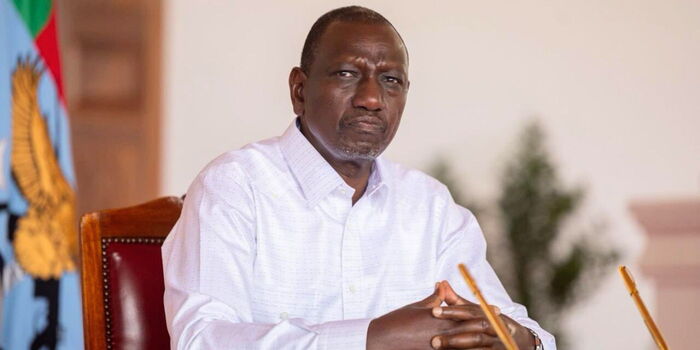Blow to Ruto as Cybercrime Law Faces Legal Challenge in Court
President William Ruto’s administration has suffered a major setback after the newly enacted Computer Misuse and Cybercrimes (Amendment) Act, 2024 was taken to court for allegedly violating the Constitution.
The controversial law, which the President signed on October 15, 2025, is now being challenged at the Milimani Law Courts through a petition filed by the Kenya Human Rights Commission (KHRC) and former presidential aspirant Reuben Kigame.
Constitutional Concerns
In their petition, the human rights body and Mr. Kigame argue that the amended cybercrime law breaches several key provisions of the Kenyan Constitution, including the rights to privacy, freedom of expression, access to information, and fair administrative action.
They insist that many of the new clauses are vague, overly broad, and capable of criminalizing legitimate online expression.
According to court documents, the petitioners claim the law gives state agencies excessive powers to monitor, access, and even restrict individuals’ online accounts without seeking judicial approval.
They argue this move violates Articles 31, 33, 34, 35, and 36 of the Constitution — the sections that protect citizens’ privacy, freedom of speech, media independence, and access to public information.
Conflict with Existing Data Protection Laws
The petition further accuses the government of undermining the Data Protection Act of 2019. The new amendments, they argue, introduce conflicting data-handling procedures that weaken the powers of the Office of the Data Protection Commissioner (ODPC).
According to the petitioners, this effectively creates a parallel regulatory system, which could allow government institutions to handle personal data without proper oversight or accountability.
Alleged Procedural Irregularities in Parliament
The petitioners also faulted Parliament for failing to follow proper procedures during the law’s passage.
They claim the National Assembly did not refer the Bill to the Senate for consideration, even though the matter touches on functions of county governments — a constitutional requirement.
This, they argue, amounts to a procedural irregularity that invalidates the legislative process leading to the enactment of the law.
What the Petitioners Want
In their court filing, the KHRC and Mr. Kigame are asking the High Court to declare the Computer Misuse and Cybercrimes (Amendment) Act, 2024 unconstitutional, null, and void.
They also seek a permanent injunction stopping the government from implementing or enforcing any part of the law until the case is fully heard and determined.
Support from Former Chief Justice Maraga
The petition received support from former Chief Justice David Maraga, who criticized President Ruto’s administration for rushing to pass and sign controversial legislation without proper public consultation.
Speaking at a press conference in Nairobi on Tuesday, Maraga accused the government of adopting a “hasty and authoritarian” approach to lawmaking, warning that such laws directly threaten constitutional rights and freedoms.
Maraga commended those who moved to court to challenge the law, saying their actions were vital in defending Kenya’s democratic principles and rule of law.
The Legislative Background
Records show that the National Assembly published the Computer Misuse and Cybercrimes (Amendment) Bill, 2024, on August 9, 2024.
The Bill went through a stage of public participation and was reviewed by the Departmental Committee on Communication, Information, and Innovation, which also received feedback from civil society groups and industry stakeholders.
However, despite those consultations, many civil society organizations insist that their recommendations were ignored, claiming the final version of the Bill still contained problematic sections that give the government wide-ranging powers over digital communication.
Growing Public Debate
The petition has sparked a wider national debate about the balance between national security and digital freedoms. Critics argue that the government is using the law as a tool to control online dissent and silence critics, while supporters maintain that the amendments are necessary to combat cybercrime and online fraud.
The High Court is expected to set a hearing date soon, with human rights defenders calling the case a critical test for Kenya’s constitutional democracy and the protection of digital rights in the modern era.
Join Government Official WhatsApp Channel To Stay Updated On time
https://whatsapp.com/channel/0029VaWT5gSGufImU8R0DO30


